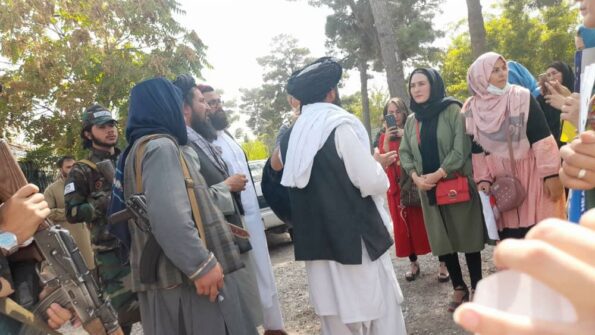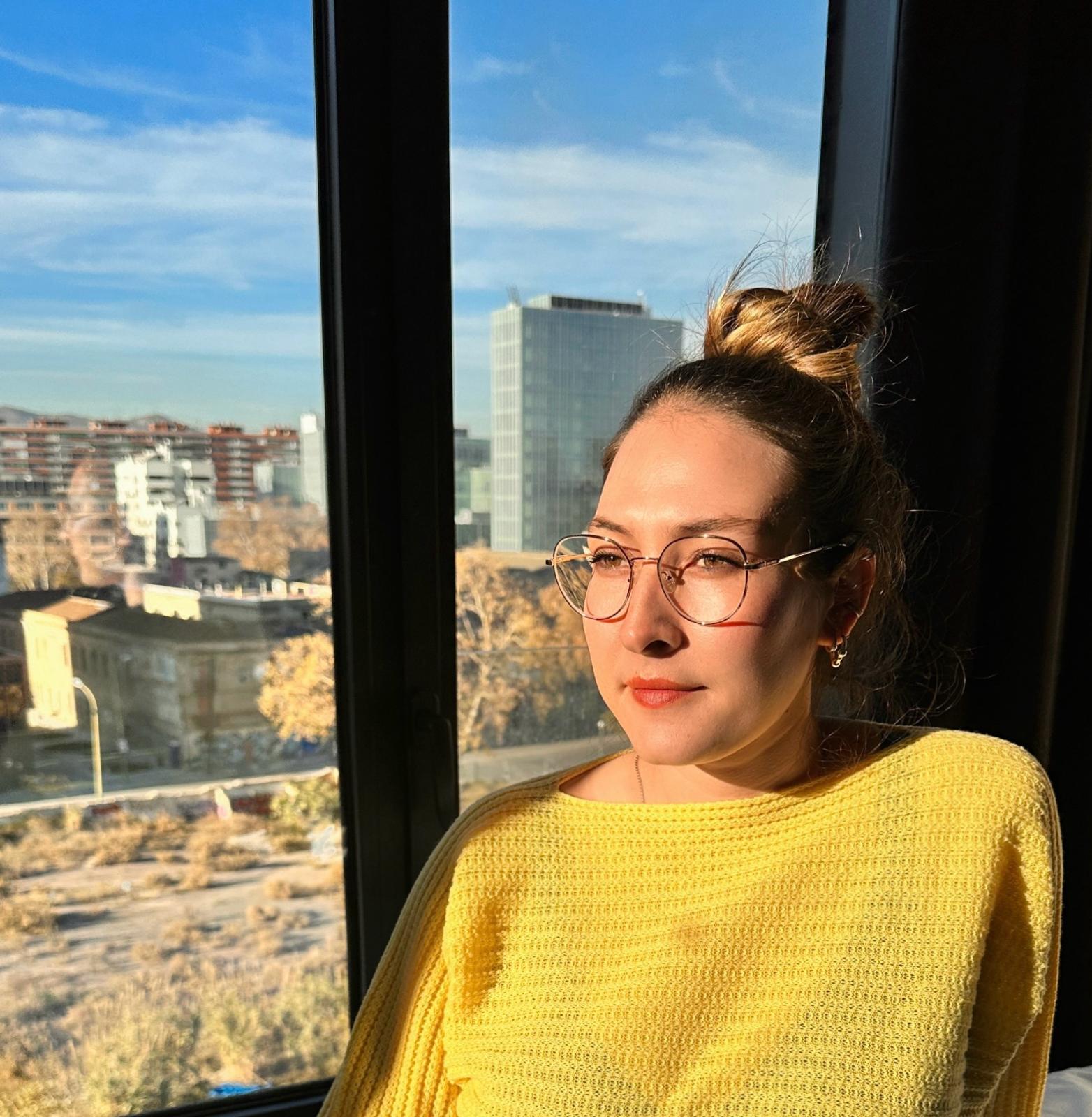Search
To search for an exact match, type the word or phrase you want in quotation marks.
A*DESK has been offering since 2002 contents about criticism and contemporary art. A*DESK has become consolidated thanks to all those who have believed in the project, all those who have followed us, debating, participating and collaborating. Many people have collaborated with A*DESK, and continue to do so. Their efforts, knowledge and belief in the project are what make it grow internationally. At A*DESK we have also generated work for over one hundred professionals in culture, from small collaborations with reviews and classes, to more prolonged and intense collaborations.
At A*DESK we believe in the need for free and universal access to culture and knowledge. We want to carry on being independent, remaining open to more ideas and opinions. If you believe in A*DESK, we need your backing to be able to continue. You can now participate in the project by supporting it. You can choose how much you want to contribute to the project.
You can decide how much you want to bring to the project.

It’s eight o´clock at night and it’s dark. We are on the border of Islam Qala, between Afghanistan and Iran, without permission to enter Iran. This side is under the control of the Taliban, the ones that have turned us into strangers, that have left us without a refuge in our own homeland. In my country, women can’t travel without a male companion. The Taliban have shown no mercy towards our colleagues who have taken to the streets to demonstrate for their rights. They have been tortured, abused, and some have even been killed.
It had been a very long day. We had arrived in Herat on a plane from Kabul. From Herat we had traveled to the Islam Qala border with a driver and another passenger who also wanted to flee Afghanistan to try and reach Australia. We arrived at the border crossing at 4:40 p.m. but it was closed. People were heading back. The driver of our vehicle had advised us to hand over our passports to the Iranian soldiers and ask them to let us pass, since we were traveling alone. We tried but it was in vain. We were not allowed to pass despite my pleas and after repeating that we were alone and that we knew no one in Herat.
– There is nothing we can do. The border is closed. Go away and come back tomorrow at seven in the morning.
We go back to the car where the driver is waiting for us. Our tired and discouraged faces speak for themselves. The driver tries to cheer us up and convince us that the border is going to reopen this afternoon, but it doesn’t and night falls.
The driver insists on returning to Herat, but the trip would be an extra cost that we can no longer pay because we are running out of money. But that is not the only reason, since the way back to Herat is dangerous for us and is too risky. The Taliban can arrest us for traveling ‘alone’ or we might be attacked by thieves. And we don’t know anyone in Herat, either. We can’t find anywhere to spend the night so the driver suggests that we stay in a hotel on the border. And here we are. The hotel in which we have decided to spend the night is a ruin. It is full of men and the rooms have neither doors nor windows. It’s December and it’s terribly cold. We decide to go back to the car and ask the driver if we can spend the night in the vehicle.
In the car, surrounded by the blackness of the night, I think about my brother Muhammad, who also took this same route, but clandestinely. Since August 15, 2021, just a few days after the Taliban came to power and Western troops left the country, he had tried several times. He had plenty of reasons to escape, for he had worked in the security offices of the previous government, and had participated in popular uprisings. When the Taliban returned, he became a fugitive, unable to return home to his wife and his children. The last time I saw him was a few days after the fall of Kabul, when he escaped towards Bamiyan. A few months later, he sent a photo of himself. Despite being only thirty years old, he seemed to have aged and weakened so much that he looked like a man of fifty. In the image, his eyes expressed despair and fatigue. His face was burned by the cold. I remember a strong feeling of helplessness and abandonment in the face of so much despair. I cried a lot that day. When my mother saw my brother’s photo she too cried, and had to leave the house. So much helplessness and vulnerability!
It is very painful to be a refugee and a stranger in your own homeland. You can’t breathe, it feels like there’s no oxygen in the air. It feels like you’re trapped, pressed between two walls. There is no path to the future and you can’t go back to the past, either.
I get a call from him, from Muhammad. He is near the border and tells me that he can arrive in a few hours, that he can come spend the night with us in this no man’s land. I don’t want him to come here, it’s dangerous. What would happen if they caught him? I panic and call him again: “Don’t come here,” I beg him. Instead, I send him the license plate number of this car. The cell phone batteries of my phone and my sister’s phone are running out and we ask my mother, my brothers and my uncles not to call us anymore. They’ve been calling all night. The darkness is immense. Hardly anyone else is here around us.
In the middle of the darkness, they arrive.
I see two Taliban coming towards the car and fear overwhelms me. A succession of terrifying thoughts invade my head and my hands freeze from fear and pressure. My eyes glaze over, I wipe them, cover my hair, and motion to my sister to do the same.
They knock on the car window.
– Knock knock.
I can barely breathe because of the fear of being identified. Did our driver report us? He is outside, a few meters from the vehicle, along with the other passenger.
My sister rolls down the window.
– Passports.
One of them turns on the flashlight and carefully reviews our documentation. The fear of being identified is horrible. The Taliban take our passports. Outside, the driver and the other passenger talk to the Taliban.
I pick up my phone and quickly type our names into Google. My sister and I had organized and participated in a few demonstrations. Yes, we appear in some news items and in photographs. I shudder and tell my sister that if the Taliban Google us, we will be lost.
– Knock knock.
They knock on the window again and we roll it down once again, trembling. They give us back our passports and we breathe a sigh of relief. The darkness and silence return to normal and the driver and the other passenger decide to spend the night at the hotel.
My sister falls asleep, exhausted, but it is impossible for me to fall asleep. It’s more than just a headache, it is more like a cerebral roar caused by questions that crowd my mind. What path awaits us? What is our future?
Suddenly, the hotel manager appears. He has learned of our situation and feels compassion. He brings us a blanket. I cover my sister, who is still asleep, with the blanket. I look out the window and my eyes fill once again with tears. I can’t stop thinking about that unknown future, about the family I’m leaving behind. I think about the loneliness that awaits me and my fears, and I cry.
I cry so much that my eye sockets and eyelids burn. I try to control myself because my headache only gets worse. Impossible. Inside me, a little voice screams “That’s enough!”, but the helplessness, the desolation and exile I feel so deep inside overwhelm me.
I cry so much that my sister wakes up.
I cry so much that, in the end, I fall asleep.
I wake up around five in the morning. I open my eyes, my eyelids swollen, burning. It is dawn but the fear of being arrested has not ceased. I can’t stop thinking about it. The Taliban are unpredictable and can change their mind at any time. It feels like time passes very slowly.
The driver and the other passenger return to the car and we resume our journey towards the border crossing. The place is very busy, with hundreds of people waiting to cross, waiting to leave. Waiting for a future as unknown as it is uncertain. A future I truly fear.
[Featured Imagen: Karima confronting the Taliban, at a demonstration. Photo from September 6, 2021_Karima Shujazada]

Karima Shujazada, born in 1994 in Afghanistan, immigrated to Iran in 2000 and began her education in a local school. She returned to Afghanistan in 2002 and completed her education in 2014. She entered university in 2015 and graduated with a degree in journalism in 2018. During her four university years, she engaged in human rights activities and worked as a broadcaster in domestic media. From 2018 until the Taliban’s return to power in August 2021, she played a role as a peace facilitator at Afghan Women’s Talent Development Center. In 2022, she emigrated to Spain and is currently a student of International Relations, Security and Development at the Autonomous University of Barcelona.
"A desk is a dangerous place from which to watch the world" (John Le Carré)